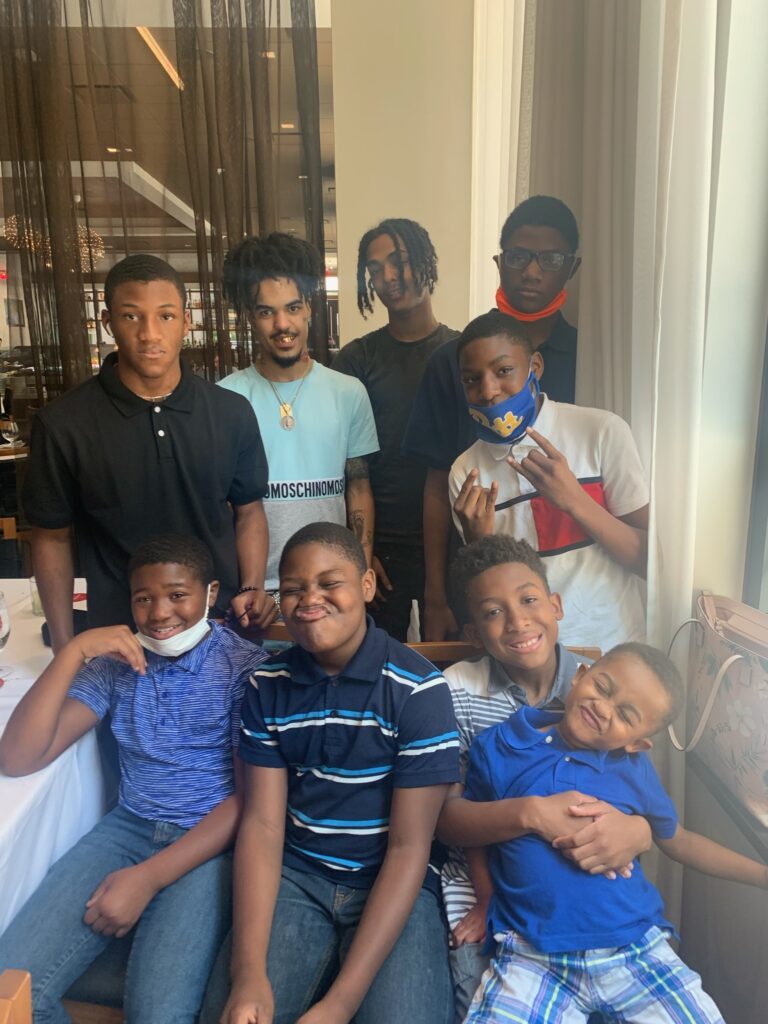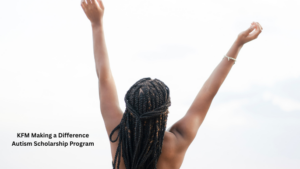This guest post is by Lee McDonald, a young man who attends Duquesne University Compass Post-Secondary Inclusive Education Program. He is an advocate for the Spring 2025 Making a Difference Autism Scholarship via the nonprofit KFM Making a Difference started by me, Kerry Magro. I was nonverbal till 2.5 and diagnosed with autism at 4 and you can read more about my organization here.
Autistics on Autism the Next Chapter: Stories You Need to Hear About What Helped Them While Growing Up and Pursuing Their Dreams was released on Amazon on 3/25/25 and looks at the lives over 75 Autistic adults. 100% of the proceeds from this book will go back to supporting our nonprofits many initiatives, like this scholarship program. Check out the book here.
My name is Lee McDonald and I am a black, autistic, man from Pittsburgh, PA. I’m the second oldest of eight children and I am the first of my family to be in college. Right now, I’m finishing my first year at Duquesne University as part of the Compass Program. It has not been an easy journey, but I have learned a lot about balancing my responsibilities between school and home, growing through challenges, and I am starting to find my voice. I am writing this essay to share my story so that others can learn about what it is like to grow up autistic and go to college. I also want to help to inspire others who are autistic, especially those who look like me, to keep moving forward through challenges.
Growing up, I was the only one in my family with autism. Even though I was the second oldest, I wasn’t allowed to go many places alone. My parents would usually have one of my three brothers walk with me. I remember always being the quietest boy in the house. I didn’t speak much, and that often made me feel like I was left out or misunderstood. School also looked a little different for me because my siblings were placed in regular classes, but I was in special classes. I also had to change schools many times, which meant that just as I was getting familiar with new friends and routines, everything would shift again. Each new school brought new challenges – finding my classrooms, meeting new teachers, and trying to make new friends over and over. I also had to go to summer school during high school for reasons I did not fully understand, which made me feel even more different.
Socially, things were tough. I often felt like people didn’t want to talk to me. I sometimes struggled to figure out how to connect with others, and I became very shy. But eventually, I realized that if I wanted to make friends, I had to come out of my shell, even just a little. That small step made a big difference, and I made my best friend in my freshman year of high school. A lot of what helped me get through school was support that I received early on. I received therapy both at school and at home, which helped my parents understand me better and helped me express myself more clearly. One of the people who made a real impact on me was an assistant teacher named Ms. Lightholder, because she helped me feel more comfortable at a new school. Looking back, I just wish more people had patience for me. I wish more people had tried harder to understand me. I also want others to know that it is okay to ask for help, and there is nothing wrong with asking for directions when you’re lost. I am still learning to ask for help when I need it.
Despite the challenges of growing up, I have a lot of really good memories from growing up. One of my favorite memories from childhood was playing video games on my dad’s Xbox 360. There was this Sour Patch Kids game with a theme song that still sticks in my head to this day. That game sparked my love for video games, which has stuck with me ever since. Playing video games is one of the ways I get to feel connected to something that I enjoyed and could be good at. This is why one day I hope to work for a video game company. One of the best parts of growing up was going to summer camps at the YMCA. I had so much fun at those camps, especially the one in Carnegie. Some of my favorite parts of summer camp were being outside, pool days with friends, and the snacks. Experiences like those helped build my confidence and helped me feel connected to my peers.
My dad always told me I was the smartest, and he believed I could go to college. He cared a lot about my grades and saw potential in me. Even though it took me a while to see that in myself at first, things started to shift in 11th grade. That’s when I realized that maybe I really could go to college. Now I am at Duquesne University, almost finished with my first year. I have learned a lot about balancing school and my responsibilities at home such as caring for my younger siblings. One of my favorite things about going to college through the Compass program is being able to work with my peer mentors and ask for help. I’ve also found that I enjoy creating my own schedule because it gives me the space to do things in a way that works for me.
Receiving the Kerry Magro Foundation scholarship would mean more than just financial help, it would be a sign that my story matters and the others believe in my future. As a first generation college student and someone who has overcome many challenges related to autism, this scholarship would allow me to continue growing academically and personally. I want to continue pursuing my education and achieve my goals so that others like me can be inspired to do the same.
Kerry Magro, a professional speaker and best-selling author who is also on the autism spectrum started the nonprofit KFM Making a Difference in 2011 to help students with autism receive scholarship aid to pursue a post-secondary education. Help us continue to help students with autism go to college by making a tax-deductible donation to our nonprofit here.
Also, consider having Kerry, one of the only professionally accredited speakers on the spectrum in the country, speak at your next event by sending him an inquiry here. If you have a referral for someone who many want him to speak please reach out as well! Kerry speaks with schools, businesses, government agencies, colleges, nonprofit organizations, parent groups and other special events on topics ranging from employment, how to succeed in college with a learning disability, internal communication, living with autism, bullying prevention, social media best practices, innovation, presentation best practices and much more!














